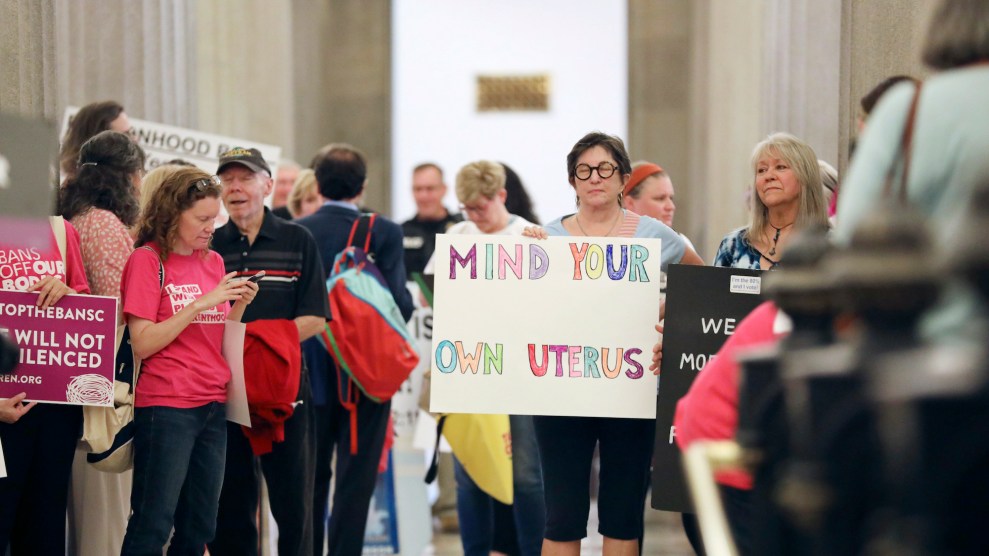
Protesters against a stricter ban on abortion in South Carolina stand in the Statehouse lobby on May, 23, 2023, in Columbia, South Carolina.Jeffrey Collins/AP
A South Carolina judge temporarily blocked the state’s new six-week abortion ban on Friday, one day after it was signed by Republican Gov. Henry McMaster.
“The status quo should be maintained until the [state] Supreme Court reviews its decision,” said circuit court Judge Clifton Newman. “It’s going to end up there.”
The state Supreme Court blocked a similar ban on abortion at the roughly six-week mark, which the GOP-controlled legislature passed in 2021, and which took effect after the US Supreme Court’s Dobbs v. Jackson decision overturning Roe v. Wade last June. In January 2023, South Carolina’s Supreme Court called that law “an unreasonable restriction upon a woman’s right to privacy.” That kept abortion legal in the state until around 20 weeks of pregnancy.
In response, Republicans passed a new abortion ban, which Planned Parenthood South Atlantic immediately challenged in court, alleging that it “violates the South Carolina Constitution’s right to privacy and its guarantees of equal protection and due process.”
The composition of the South Carolina Supreme Court has changed since its ruling blocking the first abortion ban. Judge Kaye Hearn, who wrote the 3-2 decision, retired earlier this year and was replaced by Appeals Judge Gary Hill, who was selected by the legislature. That made South Carolina the only state in the country to have an all-male state supreme court.
At least 25 states have moved to restrict abortion rights since the overturning of Roe last year, according to the New York Times. That includes every Southern state, with the exception of Virginia.












